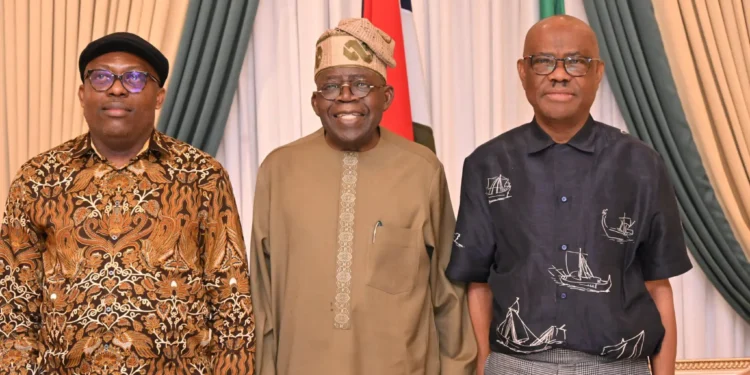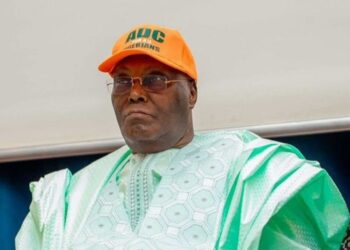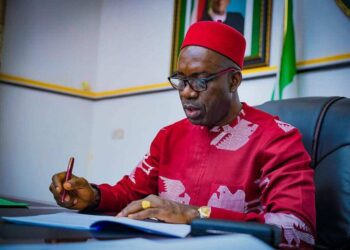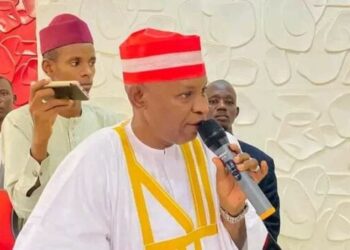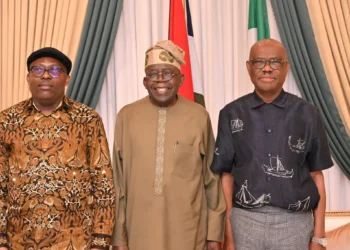The Rivers State House of Assembly has resolved to investigate the state’s financial management during the six-month emergency rule administered by Sole Administrator Ibok-Ete Ibas, marking one of the first major decisions following the restoration of democratic governance.
The resolution was passed during the legislature’s inaugural plenary session on Thursday, after President Bola Tinubu reinstated the lawmakers alongside Governor Siminalayi Fubara and his deputy. The decision signals the Assembly’s intent to scrutinize how state resources were managed during the period of federal administration.
Speaker Martin Amaewhule presided over the session, which was conducted in the conference hall within the legislative quarters due to ongoing construction work. The Assembly building remains under reconstruction following its demolition several months ago by the state government during the political crisis that precipitated the emergency declaration.
In addition to authorizing the financial probe, the lawmakers called on Governor Fubara to prepare and submit the state budget for legislative consideration. They also requested that he transmit the names of commissioner nominees for screening and confirmation, indicating their readiness to resume normal legislative functions.
The Assembly’s actions reflect a determination to exercise oversight responsibilities that were suspended during the emergency period. The financial investigation will likely examine expenditure patterns, contract awards, and revenue management under the federal administration.
Meanwhile, the African Democratic Congress has issued a strong condemnation of President Tinubu’s handling of the Rivers State crisis, describing his actions as constitutionally questionable and politically motivated.
In a statement signed by National Publicity Secretary Bolaji Abdullahi, the ADC characterized Tinubu’s approach as “whimsically autocratic,” criticizing both the original suspension of democratic governance and its subsequent restoration.
The opposition party expressed dismay at what it described as Tinubu’s attempt to disguise political brinkmanship as statesmanship. The ADC argued that the president’s interventions in Rivers State affairs would become a defining aspect of his political legacy.
According to the party’s statement, the suspension of Governor Fubara was both self-serving and unconstitutional, suggesting that the emergency declaration served political interests rather than legitimate governance needs. The ADC’s criticism extends beyond the original decision to include the manner in which democratic structures were restored.
The party’s characterization of Tinubu’s actions as “cavalier” suggests a view that the president treated serious constitutional matters with insufficient gravity. This criticism reflects broader opposition concerns about executive overreach and the appropriate limits of presidential emergency powers.
The ADC’s statement represents the latest in a series of criticisms from opposition figures who have questioned the constitutional basis for the Rivers State emergency. Former Vice President Atiku Abubakar previously described the entire episode as evidence of dictatorial tendencies within the current administration.
The convergence of the Assembly’s probe resolution and the ADC’s criticism highlights the political tensions surrounding the Rivers State crisis and its resolution. While President Tinubu has portrayed the intervention as successful crisis management, opposition voices continue to frame it as an abuse of presidential power.
The financial investigation announced by the Assembly could potentially reveal information that either validates or challenges the federal administration’s stewardship of Rivers State resources. The probe’s findings may influence public perception of whether the emergency period was managed responsibly.
The restoration of normal legislative functions, evidenced by the Assembly’s immediate move to assert oversight authority, suggests that Rivers State’s democratic institutions are resuming their constitutional roles. However, the underlying political tensions that originally precipitated the crisis remain largely unaddressed, raising questions about the sustainability of the current arrangement.

